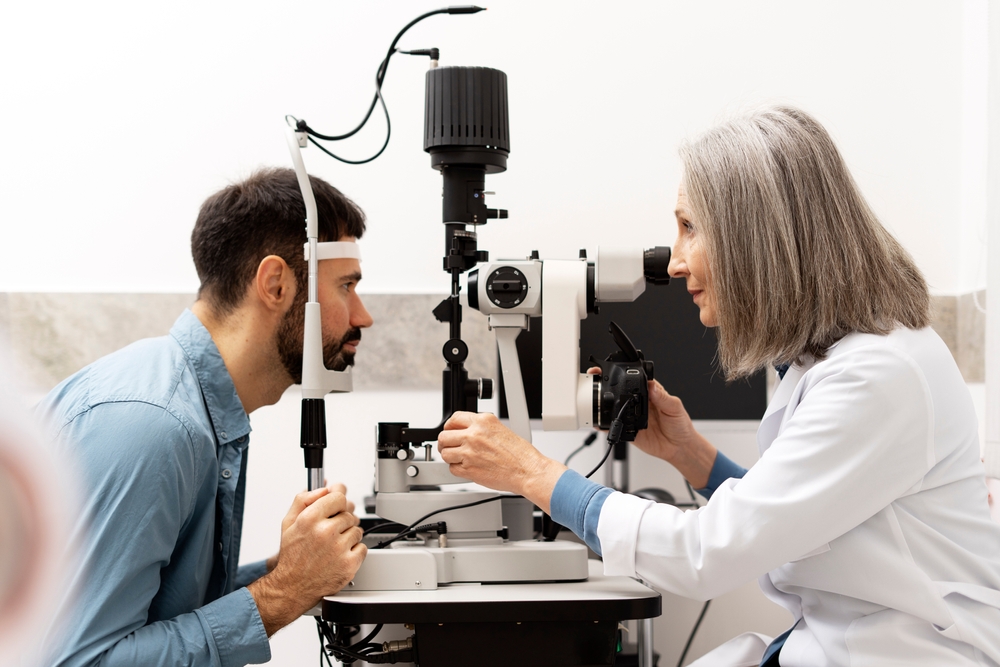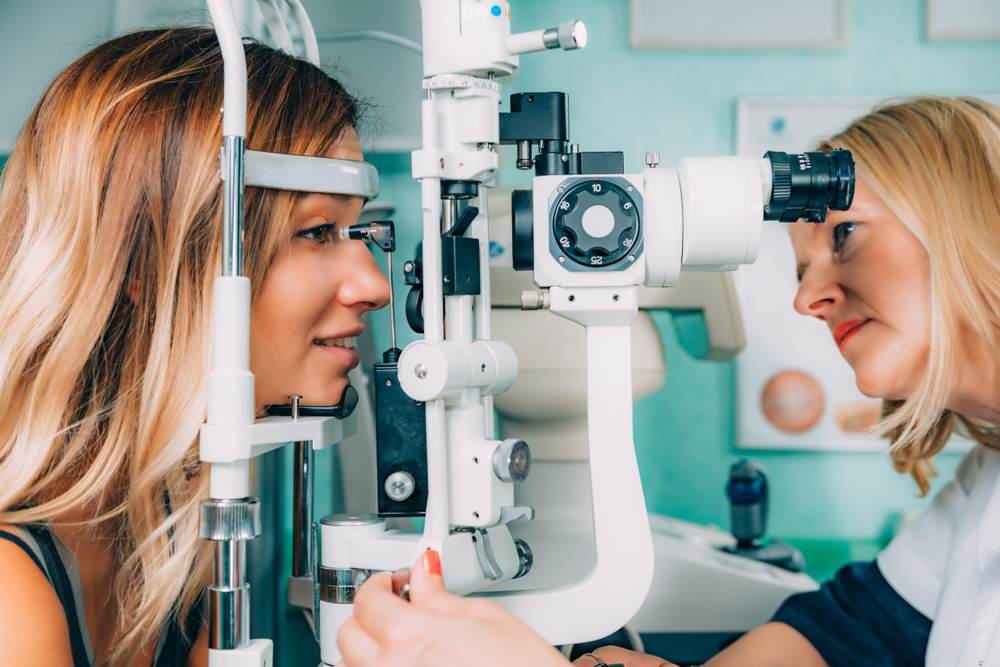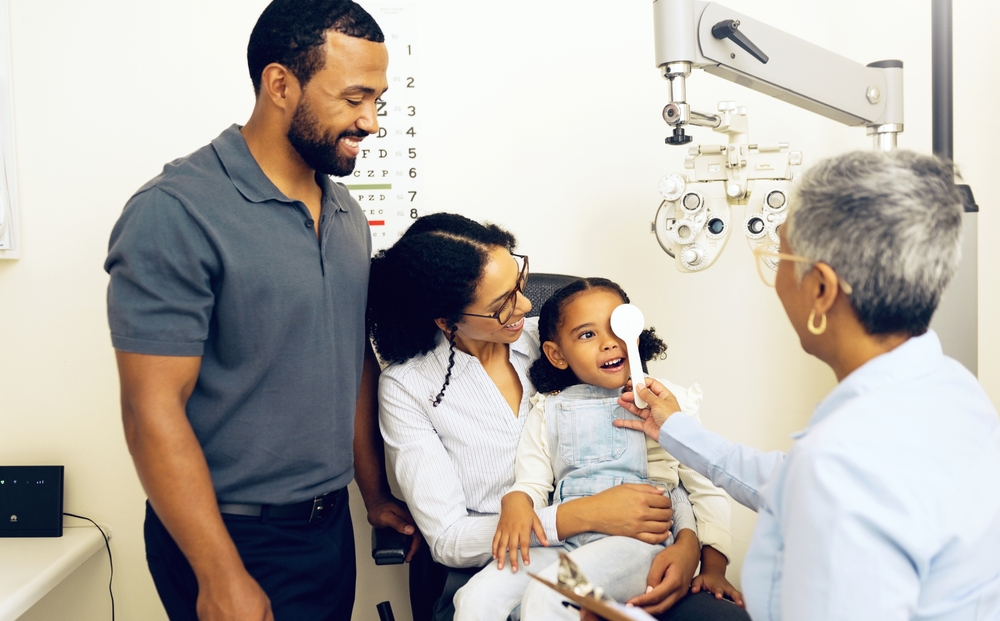Do You Need Eye Exams Every Year?
Many people wonder if yearly eye exams are truly necessary, especially when their vision seems perfectly fine. While the answer varies based on age, health conditions, and risk factors, understanding the importance of regular eye care can help you make informed decisions about your eye health and vision.
Keep reading to learn more about eye exams and how regularly you should be scheduling visits to your eye doctor!
Why Regular Eye Exams Matter

Eye exams do much more than just determine if you need glasses. Comprehensive eye exams serve as windows to your overall health, often detecting serious conditions like diabetes, high blood pressure, and even certain cancers before other symptoms appear.
These exams can identify early signs of eye conditions, such as glaucoma, macular degeneration, and cataracts, conditions that may develop without noticeable symptoms until significant damage has occurred. By the time you notice changes in your vision, the disease may have progressed substantially, making treatment more difficult and less effective.
What Happens During an Eye Exam?
During a comprehensive eye exam, your eye doctor will perform a series of tests to assess your vision and eye health. Depending on your age, risk factors, and individual needs, they may perform tests such as:
Visual Acuity Testing
Visual acuity testing can measure the clarity of your eyesight. It involves looking at an eye chart and covering one eye at a time while reading letters or numbers.
Refraction Testing
Refraction testing involves using a phoropter to determine your prescription. Your eye doctor will have you look into the device and switch back and forth between lenses to determine whether you have nearsightedness, farsightedness, astigmatism, or presbyopia and the level of vision correction you will need.
Tonometry

Tonometry measures your intraocular pressure, which is a crucial indicator of glaucoma. Often, patients with glaucoma experience no symptoms before they start to permanently lose their vision, making tonometry an essential aspect of eye exams.
Visual Field Testing
Visual field testing can also help detect glaucoma. One of the first symptoms of vision loss from glaucoma is losing your peripheral vision, so visual field testing can help detect any abnormalities you may not have noticed.
Eye Motility
Eye motility testing can measure the function of your eye muscles. This can be useful to diagnose issues like strabismus (crossed eyes) or amblyopia (lazy eye).
Slit-Lamp Exam
A slit-lamp exam involves using a special device to examine the structures within your eye, including the cornea, retina, natural lens, iris, pupil, and optic nerve. Your eye doctor will look for signs of conditions like cataracts, glaucoma, macular degeneration, and corneal conditions.
How Often Should You Have an Eye Exam?
The recommended frequency for eye exams varies based on your age and other factors:
Adults Ages 18-60
An eye exam every two years is generally sufficient if you’re healthy with no risk factors. However, if you wear contacts or glasses, have a family history of eye disease, or have health conditions like diabetes or high blood pressure, annual exams are typically recommended.
Adults Over 60
Annual eye exams become increasingly important as you age. After 60, your risk for numerous eye conditions increases significantly, and yearly examinations can catch these issues early when treatment is most effective.
Children

Children should have their first comprehensive eye exam at six months, another at age three, and again before starting school. After that, school-aged children with no vision problems should have an exam every two years.
Children who require glasses or contacts should have annual check-ups.
Patients with Risk Factors
You may need more frequent eye exams if you have risk factors for certain eye conditions like glaucoma or cataracts. These risk factors include:
- Family history of eye conditions
- Smoking
- High blood pressure or cholesterol
- Long-term use of corticosteroids
- Diabetes
- History of eye surgeries
Signs You Should Schedule an Eye Exam Sooner
Don’t wait for your scheduled appointment if you experience:
- Sudden blurry vision or difficulty focusing
- Unexplained headaches or eye strain
- Floaters, flashes of light, or vision loss
- Eye pain or redness that doesn’t resolve quickly
- Double vision
These symptoms could indicate serious conditions requiring immediate attention. Remember that many eye conditions also progress without early symptoms, which is why regular eye exams remain essential even when your vision seems perfect.
Long-Term Benefits of Consistent Eye Exams
Building a relationship with your eye doctor through regular visits creates a valuable baseline for your eye health. This history allows your optometrist or ophthalmologist to detect subtle changes that might otherwise go unnoticed, potentially saving your vision in the long run.
Think of annual eye exams as an investment in your future vision. Just as you wouldn’t skip routine maintenance for your car and risk a breakdown, regular eye care helps prevent vision problems before they start or worsen.
Schedule your comprehensive eye exam at Complete EyeCare West in Columbus, OH, today to stay on top of your vision and eye health.







